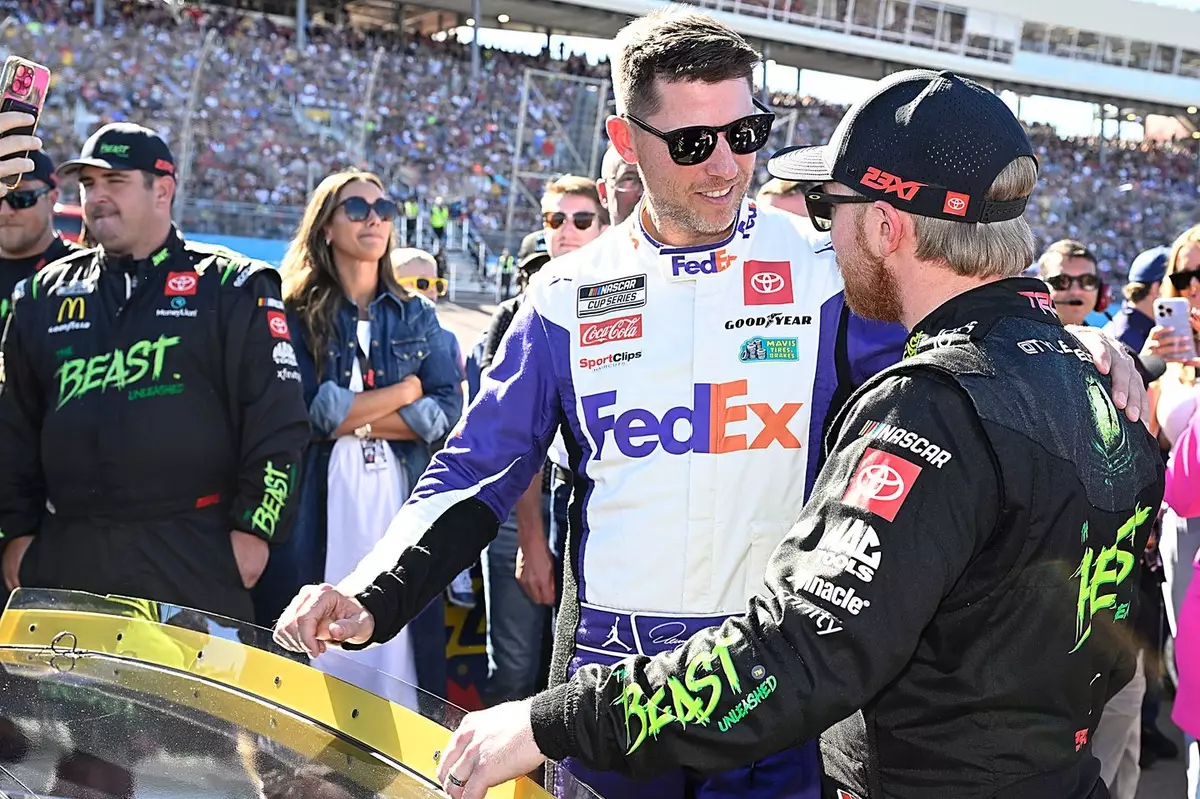In a significant turn of events for 23XI Racing and Front Row Motorsports (FRM), a preliminary injunction has been awarded that safeguards their charters for the upcoming 2025 season. This ruling is crucial amid an ongoing antitrust lawsuit against NASCAR and the France family, questioning the legality of its monopolistic practices. The court’s decision offers a temporary reprieve for the teams while simultaneously casting a spotlight on the contentious nature of the charter system within NASCAR and its implications for team operations and driver stability.
The core of the ruling states that certain disputed elements of the 2025 Charter Agreement—namely, the release clause—are currently unenforceable. This is particularly relevant as the clause prevents teams from launching antitrust claims post-signature. The context of this ruling stems from the teams’ initial defeat in seeking the injunction on November 8, where the judge at the time, Frank D. Whitney, cited a lack of evidence that losing the charters would lead to irreparable harm.
The evolution of the legal strategy employed by 23XI and FRM is noteworthy. After their initial appeal was thwarted, the teams opted to reframe their motion for the injunction. Rather than pursuing outright retention of the charter, they cleverly sought the ability to participate under the new charter agreement with the exclusion of the content that has sparked legal disputes. The case has now transitioned to Judge Kenneth D. Bell, whose interpretation of the law has paved the way for this interim victory.
The implications of this ruling extend beyond the immediate security of charters. It signals a strategic victory that could influence the overall structure of NASCAR’s governance and highlight the inequities that teams face within the league. In its analysis, the court acknowledged NASCAR’s monopolistic control over the premier stock car racing circuit, effectively confirming the validity of the teams’ overarching claims in the antitrust suit.
Diving deeper into the court’s findings reveals serious allegations regarding NASCAR’s operational practices. The court declared that NASCAR possesses monopolistic power in the premier stock car racing market, rendering it practically untouchable by rival racing series such as Formula 1 and IndyCar. The assertion that NASCAR holds a 100% market share accentuates the urgent need for regulatory scrutiny, which is foundational to the antitrust claims presented by 23XI and FRM.
Furthermore, the ruling underscores a shift from prior assessments, showcasing that the teams have now demonstrated a tangible risk of immediate harm. This is primarily seen through the lens of contract security for drivers like Tyler Reddick. The risk that his contract may be invalidated should the team be required to compete as ‚open teams‘ adds another layer of urgency to the ongoing legal dispute, with implications that extend to other affected drivers within the organizations.
With this ruling, both 23XI and FRM are poised to not only retain their existing charters but also pursue acquisition of additional ones—specifically from the now-defunct Stewart-Haas Racing. These developments, whether under the leadership of Riley Herbst at 23XI or anticipated expansions at FRM, promise to reshape their competitive landscape significantly.
However, the specter of an appeal lingers. The possibility that NASCAR might contest the ruling poses questions about the future stability of these charters and the teams’ operational strategies. Regardless, this juncture in their legal battle thus far illustrates how court rulings can elevate the visibility of antitrust grievances and incite change within the established hierarchy of sports leagues.
The preliminary injunction granted to 23XI Racing and Front Row Motorsports is crucial not only for their immediate future but also as a pivotal moment in the broader discussion of competitive fairness within NASCAR. As the teams prepare for the 2025 season, the ramifications of this legal struggle will likely resonate throughout the sport, perpetuating conversations about enforcement, equity, and the potential reshaping of NASCAR’s operational policies. The resolution of this case remains a closely watched narrative, one that could redefine the dynamics of racing and competition in the United States.


Napsat komentář